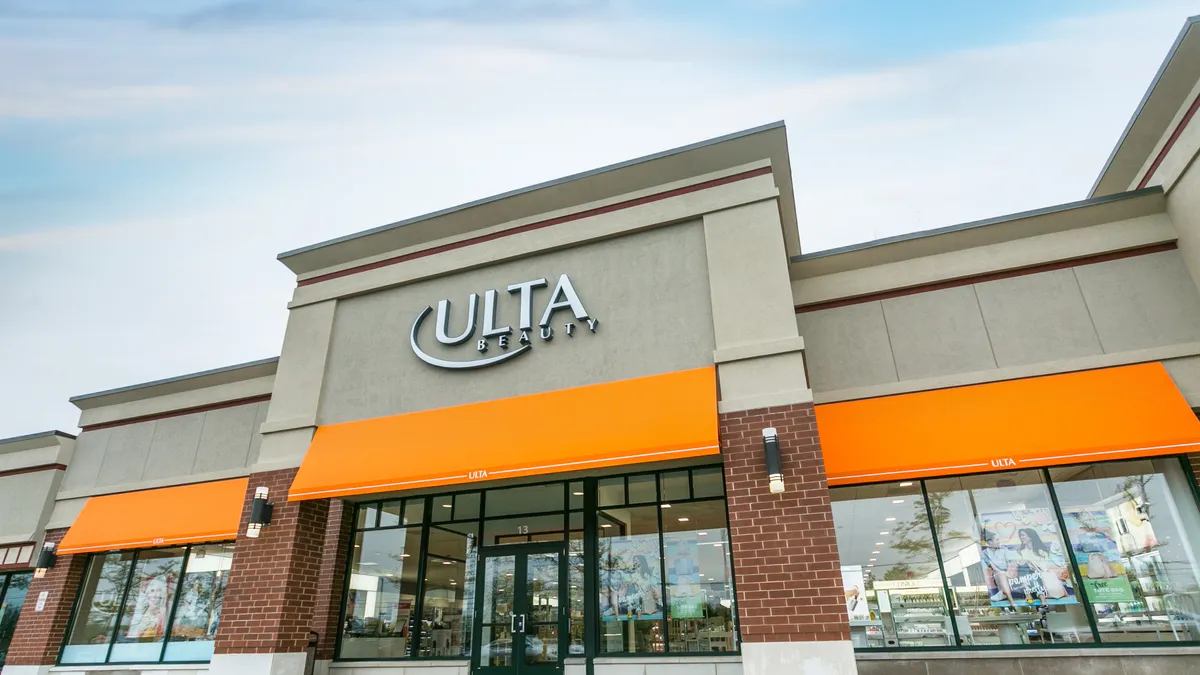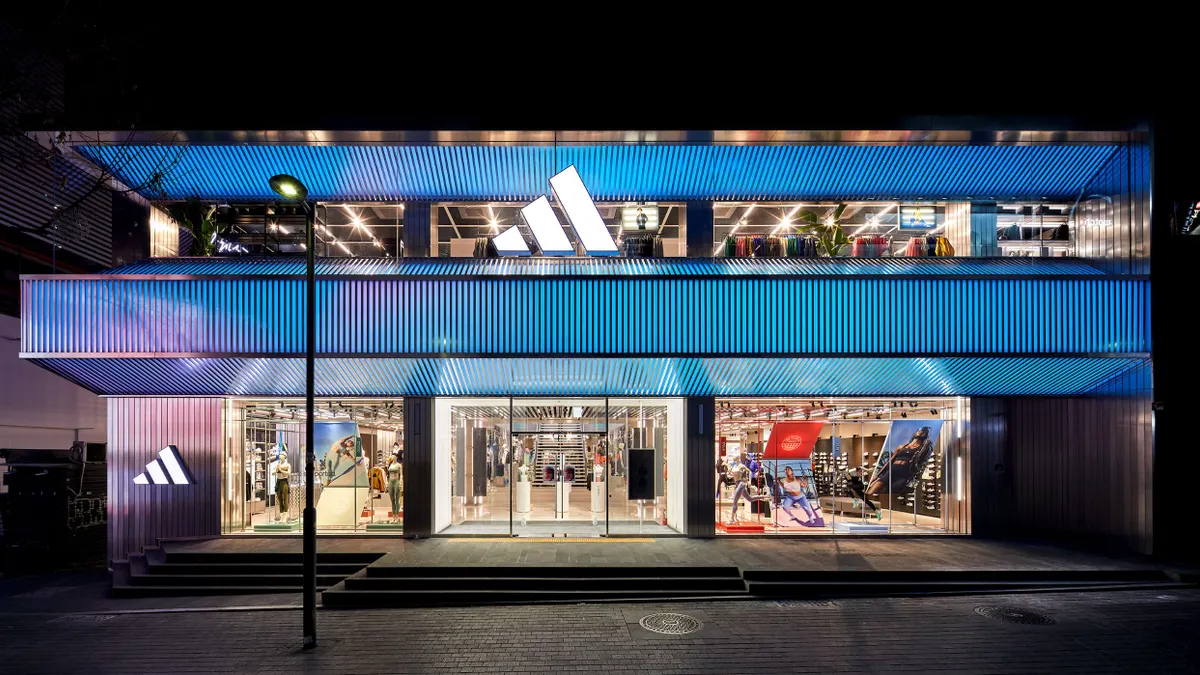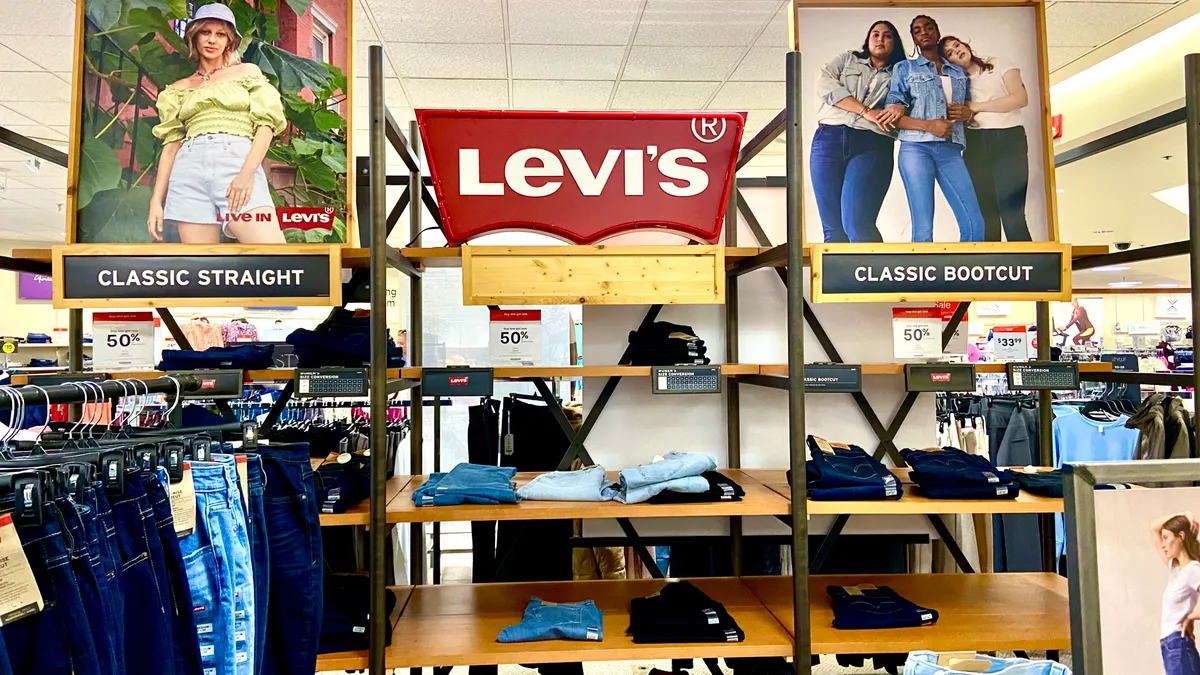NRF — Sustainability, which has been a buzzword in retail for years, took a bit of a backseat in 2020 as retailers turned their attention to tackling a global health crisis. It's just one of the elements of a larger social responsibility strategy, though, and protests over the summer after several high-profile killings of Black people by police brought to light others that retailers should be focused on as well.
In discussing how to form a successful social responsibility strategy at NRF's virtual Big Show on Wednesday, Ulta President Dave Kimbell pointed to the importance of shared purpose within a retailer to ensure efforts will last. That includes having a clear mission for the company and dedicating resources to tracking metrics and goal progress.
"It can't just be a response or short-term action," Kimbell said. "This needs to be built into the core of your company and your values and where you're headed. And I think that's largely because consumers are really expecting it. They're making choices on who they choose to align with based on the values of that company."
Kendra Clarke, vice president of Data Science and Product Development at cultural consultancy Sparks & Honey, echoed similar thoughts, saying that employees should be involved in identifying and driving forward social responsibility initiatives because leaders don't always know what it's like to be on the front lines of some issues.
The larger point, though, was that retailers should be actively considering their social responsibility strategies, not just reacting to problems as they come. Ron Jarvis, chief sustainability officer at The Home Depot, said that having a social responsibility consideration is "pretty much table stakes" in the current retail environment, whereas a few decades ago retailers were for the most part just responding to stakeholder pressure on the subject rather than proactively seeking out ways to better themselves.
It's also something that Home Depot considers when companies pitch the retailer on selling in its stores.
"In today's world, sustainability, responsibility is a competitive measurement," Jarvis said. "It's a measurement that we look at with our suppliers and we know that our customers, consumers and social investors and other investors look at this and say, 'Is this a company that I want to invest in, that knows what their impacts are for the long term?'"
To that end, Jarvis goes by the mantra: "know business, no surprises." For Home Depot, that means understanding what the company's impacts are — namely: carbon emissions, chemical exposure, deforestation, water use, waste and recycling — and finding ways to start addressing them in advance, before they reach a breaking point. Effectively, the plan is to look ahead so that the retailer has more time to work out how to address issues.
"It's really fun to have environmental groups and other folks come in to sit down with Home Depot and say, 'Hey, we're really concerned about trackless sands in paint. We think you should take it out' and we go, 'Yeah, we agree. We took it out in 2013,'" Jarvis said. "Those are the kinds of conversations that make it easy. And they look at it and go, 'Home Depot is such a nimble and agile company,' not realizing that we identified that four years ago and have been working on it ever since."
As always, one of the biggest questions for retailers is how socially responsible choices impact earnings. But much in the same way that improving diversity has been proven to have the added benefit of making retailers more successful financially, social responsibility initiatives can also have a positive impact on revenues.
"There's this perception that by prioritizing things like sustainability, by prioritizing various corporate social responsibility causes, these are cost centers more than they are drivers. But that isn't something that's necessarily borne out in a lot of the research that we've done," Clarke said. "One of the first things that I did at Sparks & Honey when I started was a project to actually quantify how certain cultural alignment shows up — so if you make certain choices, if you decide to lean in around certain ideas, whether it's sustainability or whether it's radical inclusion, or whether it's a myriad of other things — how does it affect your business? And the answer is, it actually affects your revenues, like it affects everything. And so we do ourselves a disservice when we look at metrics in a way that's a little too small."
It also obviously impacts how consumers think of the companies they buy from. Ulta launched its Conscious Beauty effort in the fall with the express focus of helping consumers find brands that lined up with their personal values, including cruelty free and vegan products, and brands that have a positive impact. At the same time, the beauty retailer also pledged that 50% of all packaging sold by 2025 would be recyclable, refillable, or made from recycled or bio-sourced materials.
Executives knew that many of these were issues consumers were interested in seeing solutions to, and Kimbell said the brand actively looks for partners to help it understand and enact different social responsibility goals.
"We know we don't have all the answers," Kimbell said. "So we look around us, whether it's our brand partners, other support partners or others outside of Ulta Beauty, to really help us understand and see the world in a holistic way to make sure that the actions that we have, the way we're showing up, the way we're leading our teams is really aligned with what's most needed in the world."
At the end of the day, though, retailers are built on the concept of consumption, which makes positive impacts, especially on the environment, difficult to accomplish. Jarvis highlighted that in terms of sustainability, what may be most important for retailers is risk assessment.
"I've often said that there are no environmentally friendly companies. People ask me all the time, 'Is this an environmentally friendly product?' And I go, 'No.' Unless you're an organic garden grower that has your garden by the river, and you deliver all your products in a wagon and a buggy, then you're not environmentally friendly," Jarvis said. "Everything we do has an environmental impact. There's risk across the board in everything, whether it's carbon emissions, chemical exposure, deforestation — all of those are risks. We look at those and we monitor and we say, 'Which ones are acceptable risk? Which ones could hurt the greater good? Which ones could hurt society?' There's risk across the board. And they all keep me up at night."
























